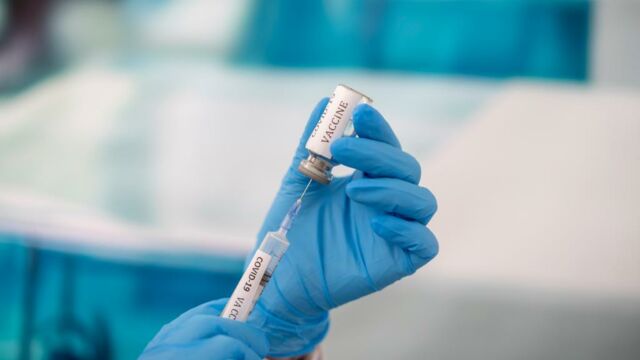Early results show COVID vaccines are just as effective against the AY.4.2 variant

An early report from the UK Health Security Agency (UKHSA) showed that COVID-19 vaccines are still effective against the new AY.4.2 variant.
Last week it was announced that the AY.4.2 variant, otherwise known as Delta Plus, was moved to the category of ‘variant under investigation’ after reports that it could be more transmissible than the original Delta COVID variant.
Discover our latest podcast
Now, according to preliminary results from the UK Health Security Agency (UKHSA) - formerly known as Public Health England (PHE) - COVID-19 vaccines are still effective against the Delta subvariant.
More under this adMore under this adVaccines 81% effective against AY.4.2 variant
The UKHSA report, initially reported bythe DailyMail, showed that COVID jabs were around 81% effective in preventing symptomatic AY.4.2 infection. For comparison, two doses of a coronavirus vaccine are about 83% effective against the original strain.
The UKHSA explained that the preliminary results do not ‘suggest a significant reduction in vaccine effectiveness for AY.4.2 compared to Delta.' However, more extensive investigations are still underway.
More under this adMore under this adAfter adjustment for the potential confounding variables, there was no evidence AY4.2 differed significantly compared to non-AY4.2 Delta cases, both symptomatic and asymptomatic, across the three vaccines in circulation.
How many cases of Delta Plus are there in the UK?
The Delta Plus variant has already been spotted in over 40 countries and was first detected in the UK on the 26th of June. So far, 24,000 cases have been identified in the UK. However, this number could be even higher as researchers are only sequencing a fraction of COVID cases.
More under this adMore under this adThe AY.4.2 variant has already popped up in most parts of England and now accounts for roughly one in 10 new COVID cases.
Last week it was announced that the new variant was moved to the ‘under investigation’ status by the UKHSA after reports that it could be more infectious than the ancestor Delta strain. Researchers initially suspect the variant to be 10%-15% more virulent, but this is yet to be confirmed.
More under this adMore under this adThe UK’s health watchdog explained that ‘the designation was made on the basis that this sub-lineage has become increasingly common in the UK in recent months, and there is some early evidence that it may have an increased growth rate in the UK compared to Delta.’
The AY.4.2 or Delta Plus variant differs slightly from the original strain with two mutations A222V and Y145H, altering the virus’ protein spike, which the virus uses to invade cells. However, according to Prof Francois Balloux, Professor of Computational Systems Biology and Director of UCL Genetics Institute at UCL, both mutations have been observed before in other COVID-19 strains, and neither have featured in a ‘variant of concern.’
More under this adMore under this adThe UKHSA explained: ‘While evidence is still emerging, so far, it does not appear this variant causes more severe disease or renders the vaccines currently deployed any less effective.’